 Petzlover
Petzlover Jaguarundi Curl is originated from United States but Turkish Van is originated from Turkey. Both Jaguarundi Curl and Turkish Van are having almost same weight. Jaguarundi Curl may live 5 years more than Turkish Van. Both Jaguarundi Curl and Turkish Van has same litter size. Both Jaguarundi Curl and Turkish Van requires Low Maintenance.
Jaguarundi Curl is originated from United States but Turkish Van is originated from Turkey. Both Jaguarundi Curl and Turkish Van are having almost same weight. Jaguarundi Curl may live 5 years more than Turkish Van. Both Jaguarundi Curl and Turkish Van has same litter size. Both Jaguarundi Curl and Turkish Van requires Low Maintenance.
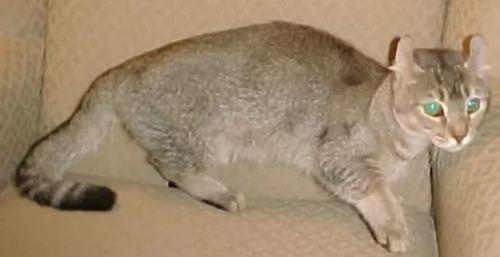 Found mostly in Central and South America, the Jaguarundi Curl has been bred to look like a wild cat. - the Jaguarundi.
Found mostly in Central and South America, the Jaguarundi Curl has been bred to look like a wild cat. - the Jaguarundi.
It was in the 1940s that the cat was also found in Florida. It is a result of a crossing between the Hyland Lynx with Munchkins and possibly other short-legged domestic cats.
The Munchkin cat is a medium-sized cat and it also has very short legs – the result of a genetic mutation.
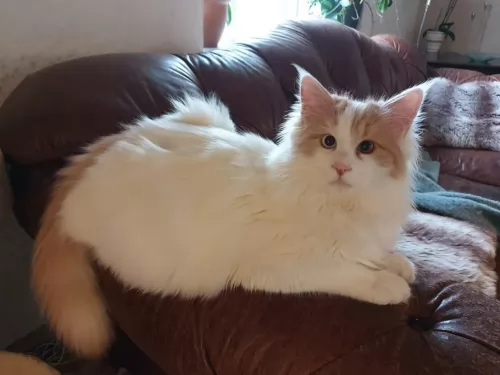 Hailing from Turkey, the Turkish Van was brought to the UK in 1955 by 2 British women, Laura Lushington and Sonia Halliday.
Hailing from Turkey, the Turkish Van was brought to the UK in 1955 by 2 British women, Laura Lushington and Sonia Halliday.
These cats were used as the foundation stock of the breed. They were brought to the United States in 1982 and accepted into championship with the Cat Fanciers’ Association in 1994.
They are a very rare breed and no other breed is allowed to be mixed into the cat's breeding schedule. All registered Turkish Van cats can have their ancestry traced back to the imported cats of Laura Lushington.
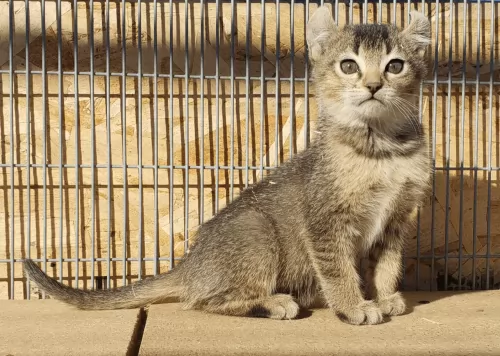 This is a medium-sized, strong, muscular wild cat with short legs, a large head and small ears that are curled and set wide apart.
This is a medium-sized, strong, muscular wild cat with short legs, a large head and small ears that are curled and set wide apart.
The eyes are wide-set and are large and expressive. The eyes can be gold, green or even blue.
The cat can weigh anything between 6 and 10kg. They can take up to years to reach their weight. The tail of the cat is long and thick, the body long and muscular.
The short coat is a ticked or a spotted pattern and can come in various colors. In most cats, the coats are tawny or solid like the Jaguarundi. In ideal specimens, coats will be tawny or solid like the Jaguarundi.
Maybe it’s the cat’s wild side but the Jaguarundi Curl cat is a shy, elusive and somewhat solitary cat. In the wild these cats only socialize to mate.
It is, however, a very vocal cat. The cat is also a good climber and swimmer and you will need to invest in climbing equipment.
If your Jaguarundi Curl has more Munchkin in him, you may find him far more sociable and actually seeking out the company of his human family.
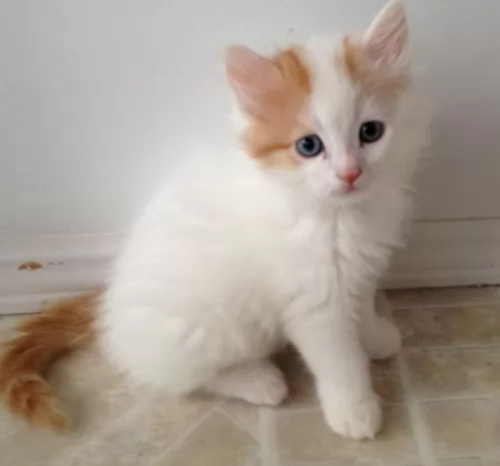 This is a medium to large-sized cat weighing roughly 3 to 8kg. It’s a semi-long-haired domestic cat breed that was actually developed in the United Kingdom with a selection of cats from Turkey.
This is a medium to large-sized cat weighing roughly 3 to 8kg. It’s a semi-long-haired domestic cat breed that was actually developed in the United Kingdom with a selection of cats from Turkey.
The breed is distinguished by the Van pattern where the color is restricted to the head and tail. So the cat is white with color on the head and the tail. The Turkish Van has no undercoat and the cat has a sleek appearance.
The cat is quite long and its back legs are slightly longer than its front legs. The paws are large and they are strong jumpers.
These cats are playful, active, and independent and they are also excellent hunters. They are affectionate and form strong bonds with their human families.
They get on well with kids as well as with other pets. Energetic and agile, they love to leap up onto high places. For a cat, they also have this fascination with water and may well follow their human into a swimming pool or lake.
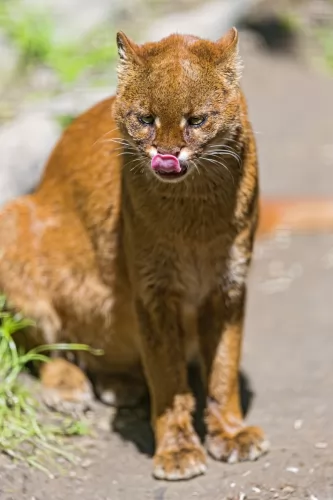 The wild Jaguarundi is smallish cat that is a little bit larger than a house cat.
The wild Jaguarundi is smallish cat that is a little bit larger than a house cat.
Some people like keeping these mixed-breed, hybrid cats, and they can make good pets, but they do tend to be reclusive. You have to remember that with these cats, part of their genetic makeup is a wild cat, and this just means that you can’t really be sure how they will turn out.
Think twice before you buy a cute little Jaguarunndi Curl kitten. Cat Rescue shelters are seeing a massive escalation in the number of hybrid cats who are just abandoned by their owners.
They wanted a ‘wild-type’ cat and ended up with behavior from the cat that they couldn’t handle. How cruel is that. Its the human's fault, not the cat.
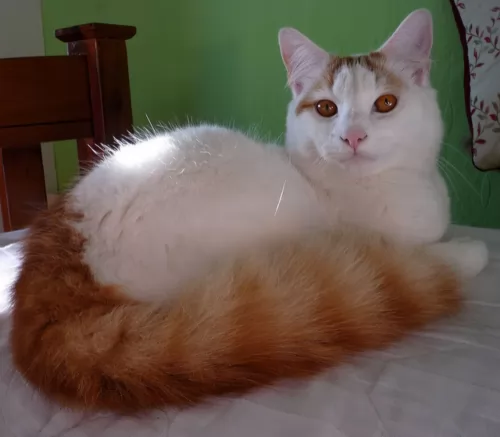 Lively, social, and intelligent, the Turkish Van is going to make you a wonderful pet and companion.
Lively, social, and intelligent, the Turkish Van is going to make you a wonderful pet and companion.
He is an active cat and will require you to play with him and provide some form of exercise for him.
He likes to leap up onto perches so getting him a climbing tree will serve him well as he is a cat that loves perching on high up places.
These cats are also low maintenance which simply adds to them being such perfect pets for single people, couples, families and seniors, just so long as he is provided with lots of love and care.
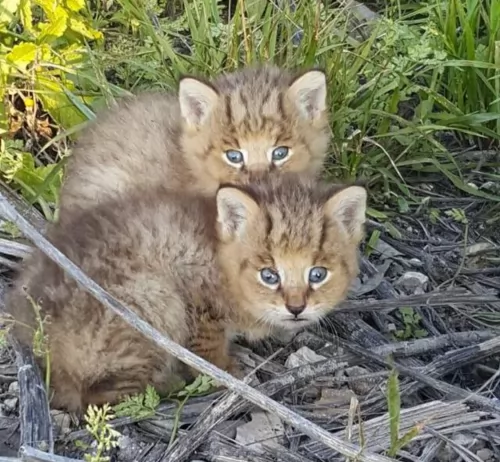 Hybrid cats do have some health issues because of their breeding. Cat owners who choose these cat breeds need to know that they have special needs.
Hybrid cats do have some health issues because of their breeding. Cat owners who choose these cat breeds need to know that they have special needs.
You should speak to your vet about the health of your cat. Domestic cats and wild cats have a different number of chromosomes. These cats wouldn’t normally mate so that when they are crossed during breeding, an abnormal genetic makeup is a result.
Reproductive problems in cats like the Jaguarundi Curl become a common occurrence and stillbirths can be the norm. Often you’ll find that some of the cats are infertile, whether male or female.
You've also got to be aware of vaccines as sometimes they don't work with these hybrid cats. Many times a cat like this is exposed to rabies and you'll find that the vaccine was ineffective.
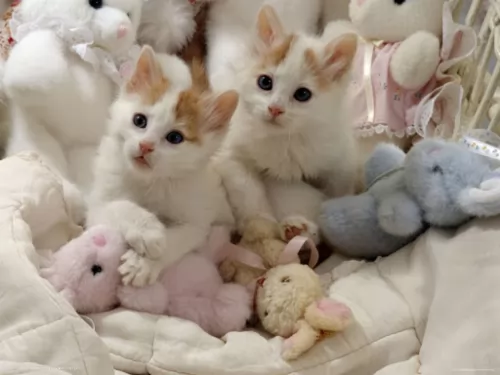 Your Turkish Van counts on you to ensure his health and wellbeing. This will ensure he lives a long and healthy life.
Your Turkish Van counts on you to ensure his health and wellbeing. This will ensure he lives a long and healthy life.
Obesity is a major disease that contributes to many illnesses in cats. Excess weight is one of the factors for the development of arthritis and diabetes as well as some life-threatening diseases.
All kinds of parasites can invade your Turkish Van’s body. . Many types of parasites can be detected with a fecal exam, so a trip to your vet may be necessary.
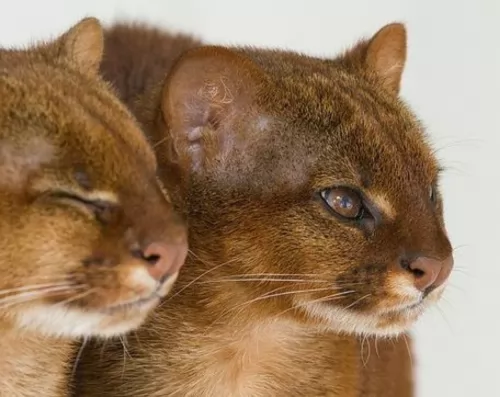 Be prepared for the new arrival of your cat. Have food and water bowls, warm bedding, toys, litter box, and food all available and waiting.
Be prepared for the new arrival of your cat. Have food and water bowls, warm bedding, toys, litter box, and food all available and waiting.
Your Jaguarundi Curl doesn’t require a specialized diet. You can feed him much the same as your other domestic cats.
The food needs to be high-quality and can be wet or dry food, so long as it makes sure that meat is the top ingredient. Your cat is a carnivore and will require meaty meals to remain healthy. Dietary supplements or vitamins can only do your Jaguarundi Curl good.
You can brush the coat once each week to remove loose hair and to keep the coat shiny.
You want to provide your cat with a litter box and keep it clean too. These hybrid cats don’t easily learn to use the litter box as they should, and they may do their business around your home as opposed to using the litter box.
Get your pet a collar and tag to identify your cat in case he gets away.
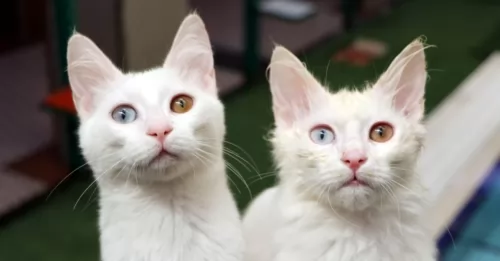 One of the most important things with a cat is diet. The cat is a carnivore. Watch his diet, and make sure he gets plenty of meaty food.
One of the most important things with a cat is diet. The cat is a carnivore. Watch his diet, and make sure he gets plenty of meaty food.
Check with your vet if you aren’t sure how to feed your cat. There must always be a constant supply of fresh, cool water available and both food and water bowls must be washed regularly.
Regularly brush your cat’s coat gently and at the same time check the body over for any unusual lumps. If you discover a new lump, get your cat to the vet.
Be sure to schedule in your cat’s vaccinations as without these your cat can die from some of the more dangerous ones.
Another wise move, if at all possible, is to sign up for pet health insurance as then you won’t dread it financially when your vet requests medical tests be done on your cat.
There are simple things you can do to ensure the longevity of your beloved cat. Good food, exercise, fresh water, and plenty of love and attention.
Turkish Vans can have problems with their teeth. Teeth brushing can be massively traumatic and uncomfortable for your pet, but the best diet and vet care will ensure healthy teeth.
Cats are meticulous about hygiene so ensure the litter box is kept clean. Remove the cat’s feces every single day.